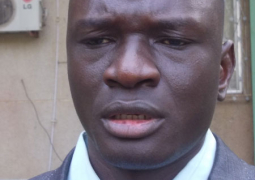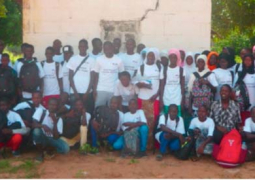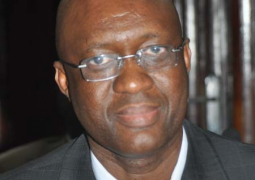
Women’s
Bureau in collaboration with the Food and Agriculture Organisation recently
launched a one-year project dubbed ‘Rural Women Empowerment in Agriculture
Project’ at a hotel in Kololi.
The
US$250,000 project is a component of the Gambia Women Empowerment Programme
(GAMWEP) funded by the African Solidarity Trust Fund.
GAMWEP
is designed to create a conducive environment that will spur women’s active
participation in profitable sustainable agricultural activities.
The
project is also aimed at providing women farmers with better access to land and
other productive resources.
Speaking
at the launching ceremony, the permanent secretary at the Office of the Vice
President and Ministry of Women’s Affairs, Nancy Nyang, said The Gambia
government and FAO have recognised that the only way to make investments in the
poultry sector to expand productivity is to further empower women.
She
said the project intervention will complement the effort of the government and
other stakeholders by promoting sustained poultry production.
The
project is expected to establish women-managed poultry feed mills at village
level to significantly improve their income levels and create sustainable
sources of alternative livelihoods for women.
Mrs
Nyang said The Gambia poultry sector has a huge potential to contribute to
national development through household food security, poverty alleviation and
diversification of agriculture.
“A
sustainable and cost effective broiler and egg industry producing additional
meat and eggs will result in the reduction of importation of poultry products
thereby making the local produce compete with the imported goods,” she said.
“Furthermore,
sustainable opportunities for income and employment creation will be opened,
thereby improving food security.”
Executive
Director of Women’s Bureau Binta Jammeh-Sidibeh said the majority of women
poultry farmers in The Gambia comprise small scale farmers operating under low
input system.
The
capacity of these people to improve production and productivity and to exploit
the opportunities across the value chain is limited by a number of constraints.
“Key
among them include inadequate access to veterinary and quality livestock
production inputs such as breeding stock, day old chicks; inadequate storage
and processing facilities for value addition; poor access to markets; low
technical and entrepreneurial capacity, and poor access to agribusiness and
financial services,” Madam Jammeh-Sidibeh said.
She
explained that despite policy commitments, there is a need for improvement in
the drive towards gender equity, equality and women empowerment in the
agriculture sector by providing the requisite knowledge, resources and policy
direction to improve the status of women farmers.




